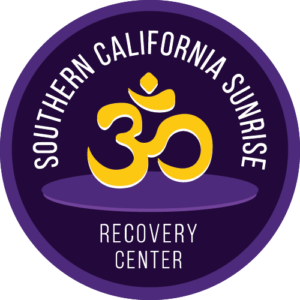Withdrawal insomnia is a prevalent and challenging condition faced by individuals undergoing opioid withdrawal. It represents a significant hurdle in the recovery journey, impacting both physical and mental health. Opioid addiction, characterized by a physical and psychological dependence on opioids, leads to a complex withdrawal process when individuals attempt to quit or reduce their use. This process disrupts the body’s natural balance, affecting various systems, including the sleep-wake cycle.
Highlighting the urgency of addressing opioid addiction and its withdrawal symptoms, the Centers for Disease Control and Prevention (CDC) reported over 81,000 drug overdose deaths in the United States in the 12 months ending in May 2020. This figure represents the highest number ever recorded in a 12-month period. Experts have noted a significant increase in overdose deaths involving synthetic opioids, primarily fentanyl. This statistic underscores the critical nature of the opioid crisis and the importance of managing withdrawal symptoms, including insomnia, as part of a comprehensive approach to addiction treatment. The impact of opioids on the brain’s chemistry and the subsequent challenge of withdrawal insomnia become even more pressing against the backdrop of these sobering figures, emphasizing the need for effective treatment strategies to support individuals on their path to recovery.
The Impact of Insomnia on Recovery
Insomnia during opioid withdrawal can severely disrupt an individual’s ability to function and recover. Lack of sleep can exacerbate other withdrawal symptoms, such as anxiety, depression, and physical discomfort, making the recovery process more difficult. Additionally, sleep deprivation can weaken the immune system, reduce pain tolerance, and impair cognitive functions, further complicating the healing process.
Why Does Withdrawal Insomnia Occur?
Opioids interact with the brain’s reward system, altering the production of neurotransmitters and affecting mood regulation, pain perception, and sleep patterns. When opioid use is reduced or stopped, the brain struggles to regain balance, leading to withdrawal symptoms, including insomnia. This sleep disruption is partly due to the absence of opioids’ sedative effects and the increase in discomfort and anxiety associated with withdrawal.
The Substance Abuse and Mental Health Services Administration (SAMHSA)’s 2019 National Survey on Drug Use and Health highlights the scale of the issue, reporting that 1.6 million people aged 12 or older had an opioid use disorder. However, a striking observation from the survey is that only a fraction of those affected received any form of substance use treatment. This gap in treatment underscores the importance of addressing withdrawal symptoms like insomnia, as they are a significant barrier to recovery for many. Navigating through the challenges of withdrawal insomnia is crucial for achieving sobriety and restoring health. Understanding the nature of this condition and its effects on recovery can empower individuals and their support networks to seek effective treatment strategies and support mechanisms, bridging the gap between suffering and healing.
Understanding Opioid Withdrawal Insomnia
Withdrawal insomnia stands as a prevalent and formidable symptom for those tapering off or discontinuing opioid use, leading to profound sleep disturbances. This symptom is a critical focus of our treatment protocols at Tres Vistas Recovery, where we strive to mitigate the discomforts of withdrawal to enhance overall well-being and facilitate a smoother recovery journey.
Factors Influencing Withdrawal Insomnia
The experience of withdrawal insomnia, along with the broader spectrum of withdrawal symptoms, can vary widely in severity and duration. This variability is influenced by several key factors:
- Type of Opioid: Different opioids have varying half-lives and potency levels, which can affect how quickly withdrawal symptoms begin and how intense they become. For instance, withdrawal from shorter-acting opioids like heroin can start within hours and be intensely acute, whereas longer-acting opioids may lead to a more delayed onset of symptoms.
- Duration of Addiction: The length of time an individual has been using opioids directly impacts the body’s level of dependence. Longer periods of use can lead to more entrenched physical dependence, potentially resulting in more severe withdrawal symptoms, including insomnia.
- Individual Health Conditions: Overall health and the presence of co-occurring mental health disorders, such as anxiety or depression, can exacerbate withdrawal symptoms. Insomnia can be particularly severe in individuals with pre-existing mental health issues, as these conditions can be both a cause and effect of sleep disturbances.
At Tres Vistas Recovery, we recognize the importance of a personalized approach to treatment, acknowledging that each individual’s journey through withdrawal is unique. By considering the type of opioid used, the duration of addiction, and individual health conditions, we tailor our care plans to address the specific challenges faced by each person, including the management of withdrawal insomnia. This individualized strategy ensures that our treatment not only addresses the symptoms of withdrawal but also supports the overall health and recovery goals of those we serve.
Tackling Opioid Withdrawal and Insomnia
At Tres Vistas Recovery, our approach to treating opioid withdrawal and insomnia is rooted in a comprehensive strategy that addresses the multifaceted nature of addiction. By integrating medication-assisted treatment (MAT), behavioral therapies, and supportive care, we aim to effectively manage withdrawal symptoms and foster a conducive environment for recovery.
Medication-Assisted Treatment (MAT) for Symptom Relief
MAT plays a pivotal role in our treatment regimen by alleviating the physical discomfort associated with opioid withdrawal, including the challenging symptoms of insomnia. Utilizing FDA-approved medications such as buprenorphine and methadone, we aim to reduce cravings and mitigate the intensity of withdrawal symptoms, thereby making the detoxification process more manageable for individuals. This aspect of treatment is crucial for those wondering “how long is opioid withdrawal?” as MAT can significantly influence the duration and severity of withdrawal symptoms, providing a smoother transition away from opioid dependence.
Behavioral Therapies: Rewiring Thought Patterns
Our therapeutic interventions, notably Cognitive-Behavioral Therapy (CBT), are designed to address the psychological aspects of insomnia during opioid withdrawal. By helping individuals recognize and modify maladaptive thought patterns and behaviors that disrupt sleep, these therapies play a critical role in enhancing sleep hygiene and teaching effective stress management techniques. This tailored approach not only aids in managing insomnia but also equips individuals with valuable coping mechanisms for dealing with the broader challenges of recovery.
Supportive Care and Environment: Fostering Healing
Recognizing the importance of a supportive recovery environment, Tres Vistas Recovery offers outpatient programs that allow individuals to balance their treatment with everyday life commitments. Our comprehensive care extends beyond individual therapy to include group sessions, peer support networks, and family therapy, thereby cultivating a community of support that is vital for sustained recovery. This nurturing environment is instrumental in addressing the concerns of individuals and their families, providing a solid foundation for healing and long-term sobriety.
One critical aspect of our supportive care involves addressing specific concerns related to the detoxification process, especially for those dealing with potent opioids like fentanyl. Understanding “how long does it take to detox from fentanyl?” is essential for setting realistic expectations and preparing for the journey ahead. Our programs are designed to provide the necessary medical supervision and support, ensuring a safe and effective detox process tailored to the unique needs of each individual.
The potency of fentanyl, which is up to 50 times stronger than heroin and 100 times stronger than morphine, significantly contributes to the complexity of detoxification and the necessity for a supportive care environment. This fact underscores the critical need for comprehensive support during detox, as fentanyl’s strength makes it a significant contributor to the increase in overdose deaths. The challenge posed by fentanyl in the recovery process highlights the importance of a well-structured and supportive treatment program to navigate the difficulties of withdrawal safely and effectively.
By embracing a holistic approach to treatment, we at Tres Vistas Recovery are committed to guiding individuals through the complexities of opioid withdrawal and insomnia. Our goal is to offer a pathway to recovery that is compassionate, comprehensive, and tailored to the unique needs of each person we serve, ensuring that every step taken is one closer to a healthier, opioid-free life.
Strategies for Improving Sleep During Opioid Withdrawal
Improving sleep during opioid withdrawal is crucial for recovery. Here are practical tips to help manage withdrawal insomnia:
- Establish a Routine: Stick to a regular sleep schedule to help regulate your body’s clock, making it easier to fall asleep and wake up.
- Create a Restful Environment: Ensure your bedroom is quiet, dark, and cool. Consider using earplugs, eye shades, or white noise machines to create a more sleep-conducive environment.
- Limit Caffeine and Nicotine: Avoid stimulants such as caffeine and nicotine, especially in the hours leading up to bedtime, as they can exacerbate insomnia.
- Exercise Regularly: Moderate exercise can help improve sleep quality. However, avoid strenuous workouts close to bedtime as they can interfere with sleep.
- Mindfulness and Relaxation Techniques: Practice relaxation methods such as deep breathing, meditation, or progressive muscle relaxation to reduce stress and promote sleep.
- Avoid Naps: While it might be tempting, try to avoid long naps during the day, as they can disrupt nighttime sleep patterns.
- Seek Professional Help: If insomnia persists, consider speaking with a healthcare provider about possible treatment options, including medication-assisted treatment or counseling.
It’s also important to address common questions and misconceptions during treatment, such as whether Xanax is an opioid. Xanax is not an opioid but a benzodiazepine used for anxiety and panic disorders. While helpful in some treatment scenarios, it must be managed carefully due to its potential for dependence.
Tres Vistas Recovery – Opioid Addiction Treatment
At Tres Vistas Recovery, we are dedicated to providing comprehensive care for individuals facing the challenges of opioid addiction and withdrawal insomnia. By combining medication-assisted treatment, behavioral therapies, and a supportive care environment, we tailor our approach to meet the unique needs of each person. If you or a loved one is struggling with opioid addiction, we are here to support you through every step of the recovery process. Contact us today to learn more about our services and how we can help you on your path to recovery.

Tracey Kane is an Associate Marriage and Family Therapist and Assistant Clinical Director at Tres Vistas Recovery. With over 11 years of experience in the field of addiction treatment, Tracey has dedicated her career to helping individuals struggling with substance abuse and mental health issues.












